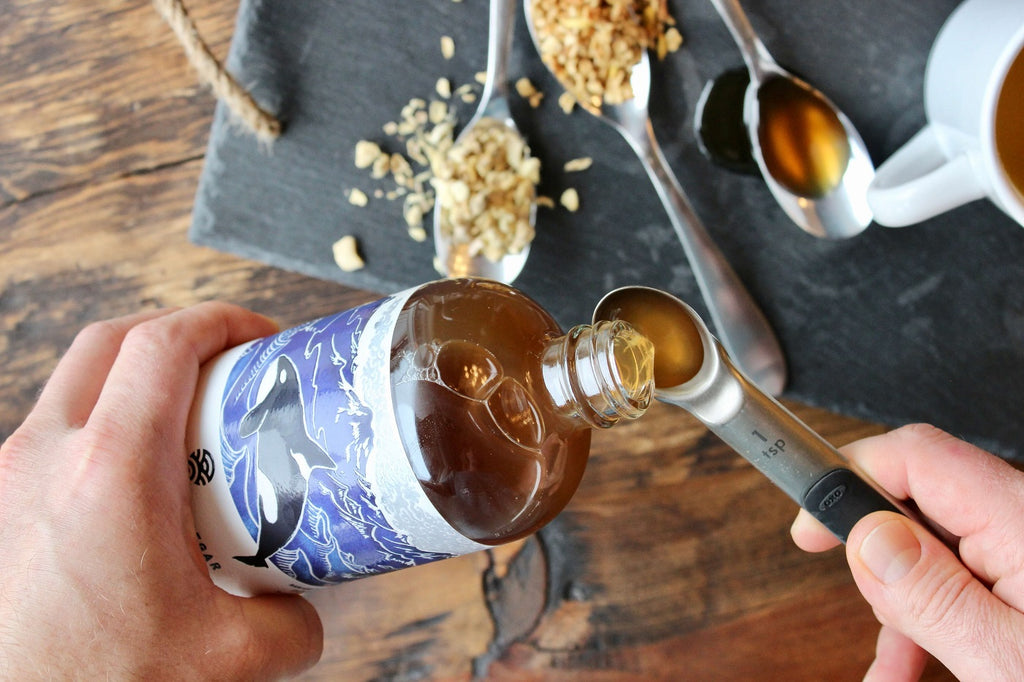I first encountered Ayurveda when I was travelling in India and Nepal six years ago. To a young college student, it was a new health system through which one could understand the body, the mind, and their connection. Of course, Ayurveda is not a new concept at all. Rather, it is a 3000 year old natural system of medicine that finds its roots in the Indus Valley - what is now Pakistan.

In those ancient and fertile fields, rice, mung beans, urad dal, ginger, and turmeric grew alongside one another. The center of civilization eventually shifted to the Ganges basin. It was there that the Vedas were composed, an ancient Sanskrit text that describes elements, plants, and herbs. The Vedas are a foundational document for Ayurveda.
"In Ayurveda, the five elements that are found in all living things - ether, air, fire, water, and earth - are the building blocks of life. While this foundation unites all humans, the manifestation of those elements through the doshas is what gives rise to our different constitutions. How the three doshas appear, and in what proportion, is what makes each of us unique." - Chopra
These doshas are vata, pitta, and kapha. Each of us have a certain amount of all three, though we usually have a "dominant" dosha. There are many dosha quizzes online where you can find out yours!

We made a tea blend that complements the qualities of each dosha. Using the highest quality herbs from Mountain Rose Herbs, we've made it easy for your to find your balance.
Winter is the perfect season to take intentional care of your body. Warm liquids can benefit circulatory and digestive health, plus make hydrating easier in these cooler months. Raw apple cider vinegar also keeps your digestive and immune systems in fighting shape, and is a worthy addition to your cold and flu prevention toolkit. Delightful tastes should make you feel delightful, too!

Pitta
To balance pitta, we love fennel tea. Fennel is a cooling herb, and "considered nourishing to the brain and eyes and calming to the spirit." If any dosha's spirit needs a little calm, it's pitta!

Pitta-Pacifying Tea
- Add 1 tsp. Mountain Rose Herbs Fennel Seed and 1 tsp. Orange Peel to 8 oz hot water.
- Let steep for ten minutes.
- Strain herbs and add 1 tsp. Apple State Vinegar and 1/2 tsp. maple syrup.
- Enjoy!
Kapha
Kapha needs warming and invigorating herbs, especially during the colder months of the year. That's why we love the power of ginger - it's like an infusion of pump-up energy.

Kapha Love Tea
- Add 2 tsp. Mountain Rose Herbs Ginger Root and 1 tsp. Lemon Peel to 8 oz hot water.
- Let steep for ten minutes.
- Strain herbs and add 1 tsp. Apple State Vinegar and 1/2 tsp. raw honey.
- Enjoy!
Vata
As for Vata, these creative, cool folks need grounding herbs and spices to keep their imaginations rooted in reality. Cinnamon is a warming, aromatic herb that is delicious as a tea.

Vibrant Vata Tea
- Add 2 tsp. Mountain Rose Herbs Ginger Root, 1/2 tsp. Orange peel and 1 inch Cinnamon stick to 8 oz hot water.
- Let steep for ten minutes.
- Strain herbs and add 1 tsp. Apple State Vinegar and 1/2 tsp. raw honey.
- Enjoy!
Ayurveda is a fascinating science and art that is thousands of years old. It's almost impossible to distill it into one blog, so be sure to check out all the amazing resources on the internet! Banyan Botanicals has some great recipes, and the University of Minnesota is a fount of knowledge about history, philosophy, and Ayurveda's modern applications.
